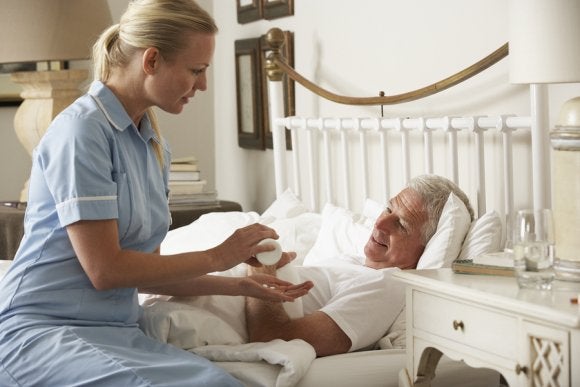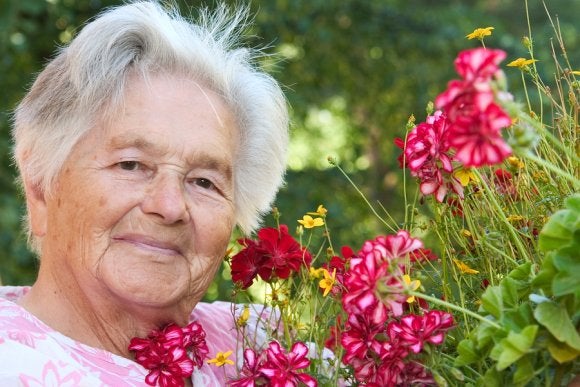-
Recognizing the Symptoms of Caregiver Burnout
When acting as a caregiver in Memphis, you’re vulnerable to feeling more stress and experiencing poorer health due to lost wages and not making time for yourself. If you’re providing in-home care for a loved one , it’s essential to be aware of the symptoms of caregiver burnout. Watch this video to learn more.
Providing elder care can be exhausting, time-consuming, and emotionally draining. The greatest challenge that most caregivers face is making time for themselves and knowing when they need a break. Common symptoms of caregiver burnout include depression, decreased productivity at work, and ongoing fatigue. If you’re struggling with these symptoms, consider taking advantage of elder care respite services.
-
How Caregiving Affects Women
Elder care affects the whole family, but women in particular tend to carry a large part of the burden. If you are contemplating issues surrounding elder care in Memphis for a loved one in your family, this video offers some insight into the impact of the issue on women.
Women tend to take the lead when it comes to elder care for loved ones because of the roles that women traditionally play in families. This can leave women carrying a great deal of the responsibility at the expense of their own well-being. If a woman in your family is devoting her time to acting as a caregiver, consider contacting a home health aide to help shoulder some of the work and give your family member time to care for herself and her own needs.
-
Comparing Hospice and Palliative Care
Are you deciding between palliative care and hospice near Memphis ? There are differences between these two options, and it is important to be fully informed before you make these decisions for yourself or a loved one.
Hospice care programs are generally administered by professional care providers in a patient’s home. However, some hospice programs do take place at caregiving facilities. With hospice, it is important to have family support, as well. A professional caregiver can provide support as a visiting hospice nurse. A professional caregiver may also offer more comprehensive care, depending on a family’s needs and availability. But by the time patients need hospice care, they have progressed to the point where they need constant assistance and support. Conversely, palliative care teams are directed to end-of-life care. Patients requiring palliative care generally need more medical support than a hospice care patient, who may not be struggling with a particular illness. Palliative care relies on teams to administer medicine. Therefore, palliative care is usually administered at a professional facility or hospital. An institution like a nursing home or senior assisted living facility is also ideal for different kinds of palliative care.

-
Understanding the Services Provided By Hospice Care
If you’re considering hospice care in Memphis for your loved one, it’s important that you have a good idea of which senior care services each hospice can provide. Hospice care often provides in-home attention for elders so that your loved one can remain in the comfort of his own home while receiving health care. Here is a simple guide to understanding the home health care services provided by in-home hospice care.
 Respite Care
Respite Care If you are the primary in-home caregiver for an elderly relative, you may occasionally need a break from providing round the clock elderly care. A home health agency can provide you with respite care services that allow you to take a vacation from elder care while a qualified, experienced home health aide provides your loved one with at home nursing care. You can schedule respite care on a regular weekly or monthly basis, or you can seek respite care services on an on-call basis.
Dementia and Alzheimer’s Care
Dementia and Alzheimer’s disease both cause progressively worsening symptoms, including memory loss and cognitive impairment. If your loved one has been diagnosed with either condition, he may eventually need home health care and senior assisted living services. Your loved one may not be able to bathe, dress, or feed himself, and may have difficulty with mobility and remembering to take medication. If your loved one isn’t quite ready to move into a nursing home but can’t manage to care for himself, you should contact a hospice care service. A private duty nurse or home health aide can provide medication management services, personal care services, meal preparation, transportation, housekeeping services, and memory care.
End of Life Care
One of the most difficult decisions to make is determining whether a loved one needs end of life care. A home health agency can schedule regular visits from a home health aide with experience in end of life caretaking. Your in home caregiver can provide terminally ill hospice care, ensuring that your loved one receives the professional and compassionate care he needs while remaining in his own home.
-
The Advantages of Respite Care
When an elderly loved one becomes ill or is recovering from surgery or a broken bone, families often take on the task of caring for elders in their home. After time, however, families may discover that they don’t have the time, skills, or resources to provide appropriate in-home care in Memphis for their loved one. In this situation, it’s useful to consult with a caregiver agency that offers respite care .
Respite care includes senior assisted living services that provide your elderly loved one with help with day-to-day tasks and chores around the home. This may include assistance with personal in-home care tasks such as bathing, dressing, and going to the bathroom. A home health aide can also provide your loved one with medication reminders, and transportation to and from doctor’s appointments or the pharmacy.
Caregivers also offer homecare assistance with meal preparation and household chores. A caring companion can do light housekeeping, laundry, dishes, and other tasks that your loved one isn’t able to complete himself. Most importantly, in-home assisted living caregivers provide support and companionship that prevents seniors from becoming depressed and lonely during their recovery.

-
The Importance of Respite Care
When you’re tasked with taking care of a loved one, taking care of yourself is just as important of a job—and it can seem just as difficult to do. Caregivers often feel overwhelmed and guilty about taking time for themselves, but in reality, it’s impossible to provide the care you want to give if you aren’t at your best. Respite care near Memphis allows you to get the break you need while knowing that your loved one is still receiving the support he or she requires. Here is a look at why respite care is an essential part of being a caregiver.
Physical Health
Many caregivers find that they get sick more often than they did before they were in charge of providing care. It’s no surprise that this happens, since you’re more likely to miss out on sleep, healthy eating, and regular exercise when your loved one needs your attention. When your body doesn’t get the basic things it needs, like rest and nutrition, you become more vulnerable to infection. With respite care, a home health aide can take over care duties while you sleep, work out, or simply rest and let your body heal.Emotional Health
 Being a caregiver is rewarding, but it is also emotionally demanding. The less help you have with care, the more stressful your duties can become. In addition to the damage that long-term stress can do to you, you may find that you become inpatient with your loved one because of the pressure. Respite care gives you an important opportunity to focus on yourself and do things that bring you pleasure, such as engaging in favorite hobbies and spending time with friends, which can help to restore your emotional health.
Being a caregiver is rewarding, but it is also emotionally demanding. The less help you have with care, the more stressful your duties can become. In addition to the damage that long-term stress can do to you, you may find that you become inpatient with your loved one because of the pressure. Respite care gives you an important opportunity to focus on yourself and do things that bring you pleasure, such as engaging in favorite hobbies and spending time with friends, which can help to restore your emotional health.Personal Relationships
Because of the demands of your caregiving duties, you may have less time for important personal relationships. You can preserve these connections with the help of respite care. Use the opportunity to go out with your spouse, spend the day with your kids, or catch up with an old friend.
